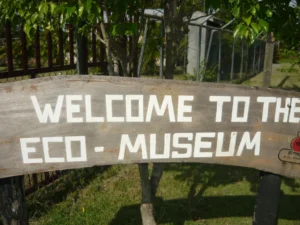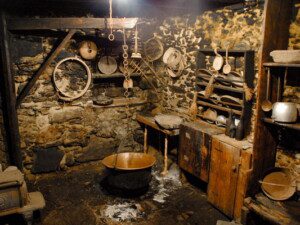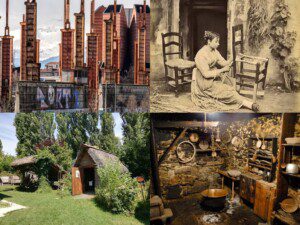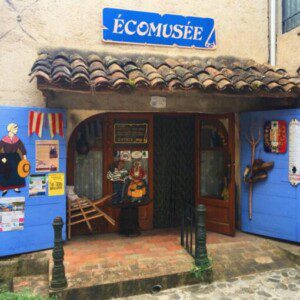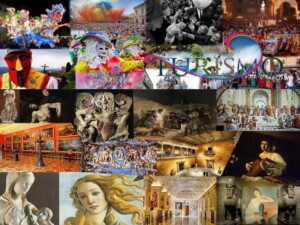TAS54: Heritage Interpreter (800 hours))

Supplying authority: Helios Study Center
Course Type: Professionalizing course which provides for the issue of Professionalizing Certificate pursuant to Law 4/2013
Course delivery methods: Online
Recognized Professional Profile: Cultural Heritage Interpreter
The profession.
The Heritage Interpreter is a professional figure with a high intellectual content who has specific skills to carry out activities of:
- Conception, Design, Implementation, Participation, Communication, Implementation, Evaluation, Improvement and Innovation inherent to Interpretative Services (mediated interpretation) and to the paths of Interpretation Experiences (direct interpretation).
- Identification, Cataloging, Knowledge, Interpretation, Documentation, Conservation, Protection, Enhancement, inherent to the Cultural Heritage
Note:
- Interpretation services (mediated interpretation): Realization of communication tools and services (signs, signs, maps, illustrative brochures, guides, flyers, multimedia productions and stations, installations, websites, apps, etc.) and design of Interpretation Plans
- Interpretation Experience Paths (direct interpretation): Initiatives that provide for the direct participation of both interpreters and guests in the interpretative activities.
In order to take into account the different specializations operating in the sector of interpretation and the correct assignment of skills, knowledge and competence, five specialist profiles are taken into consideration for the purpose of exercising the profession of Heritage Interpreter:
- CP160 / P1: Interpreter of the Archaeological Heritage
- CP160 / P2: Interpreter of the Historic - Artistic Heritage
- CP160 / P3: Interpreter of the Demo-ethno-anthropological Heritage
- CP160 / P4: Interpreter of the Environmental Heritage
Note:
- The difference between the various forms of Cultural Heritage Interpretation is exclusively linked to the degree of sectoral specialization and to the tools used during the entire interpretation process, as each Interpreter must in any case have a solid knowledge and skills in all sectors. Therefore, there will be no distinct professionalism but a single professionalism (Interpreter of Cultural Heritage) specialized in one or more sectors that have relevance to Cultural Heritage in the broadest sense of the term.
- The professional who has the preparation to carry out the activities associated with at least one of the five profiles indicated is considered Cultural Heritage Interpreter.
- A Cultural Heritage Interpreter works in one or more of the areas indicated.
The knowledge
The Heritage Interpreter has a deep knowledge of his own territory and of the cultural heritage in its various forms from the material one (historical-artistic cultural heritage, landscape and natural heritage) to the intangible one (tradition, folklore, art, food and wine, typical crafts, local history and traditions) in order to identify and arrange, in a systemic way, both interpretative services and unique paths of cultural interpretation experiences. The Cultural Heritage interpreter also adopts a systemic approach that highlights, during the entire interpretative path, typical aspects of experiential learning: motivation, interpersonal relationships, multi-sensoriality, local identities, centrality and uniqueness of the participants and originality of the participants. tools used.
Regulations and reference schemes
- European Qualification Framework (EQF)
- Recommendation 2009 / C 155/02 (European Credit System for Vocational Education and Training - ECVET)
- Law 4/2013 relating to non-regulated professions
This figure is also recognized by the Italian Association of Tourism Professionals and Cultural Operators (AIPTOC) authorized by Ministry of Economic Development (MISE) to release Certificate of quality and professional qualification of the Services pursuant to Articles 4, 7 and 8 of Law 4/2013.
For attending the course it is possible to take advantage of the concessions provided by the "Campaign for Experiential Literacy and Professional Training” to which reference is made for details
Structuring of the training path and EQF level
240 hours of total effort structured in:
-
- 200 hours training in E-learning mode
- 40 hours Project Work
EQF level: 5
Summary of the Didactic Units (UD) of the Online Course Director of Experiences
Note 1: By clicking on the name of the UD, you are directed to the single course page containing the detailed programme. It is clarified that the cost indicated on the web pages of the single UD is due only in the case of separate purchase of the UD, therefore it should not be taken into consideration in the case of purchase of this training course. In this context, the link to the page is inserted only to view the educational program.
Transversal module (80 hours) (compulsory for all specializations)
- TRA3: Communication and communication styles
- TRA4: Working Groups and Conflict Management
- TRA13: Privacy and Data Protection
- TRA16: Informatics for communication: Video conferences, webinars and direct streaming
Professional Training Module (Cultural Heritage Interpreter) (400 hours) (compulsory for all specializations)
- BAS1 Unesco and Cultural Heritage (CTB1)
- BAS2 The Natural Heritage (CTB2)
- BAS3 The Intangible Heritage (CTB3)
- BAS4 The Archaeological, Historical and Artistic Heritage (CTB4)
- BAS5: Food and Wine Heritage (CTB5)
- BASRX: The Regional Material and Intangible Heritage (CTB35) (the activated module will differ according to the region of origin of the student)
- BASEX: The Regional Enogastronomic Heritage (the activated module will differ according to the region of origin of the student) (CTB5)
- QMN6 Quality Management(CTQ15)
- BAS14: Events
- BAS15: Museology, New Museology and Ecomuseology (CTS18) (CTS51)
- SPE5 Sustainable Tourism (CTS20)
- SPE15 Tourism Marketing (CTS7)
- SPE17 Tourism Legislation (CTS49)
- SPE18: The legislation for the protection and use of cultural heritage (CTS45)
- SPE26 Innovative Technologies and Social Media (CTS53)
- SPE48 Environmental Education and Sustainable Development (CTS15)
- SPE58: Pedagogy and Educational Standards (CTS55)
- SPE73 Techniques and Models of Interpretation of Cultural Heritage
- SPE79 Design of Cultural Heritage Interpretation Plans (CTS50 – when combined with SPE73 -)
- SPE81 Tools for interpretative communication (CTS54)
- SPE100: Introduction to Experiential Pathways (CTS47)
- SPE101: Principles of Cultural Heritage Interpretation (Heritage Interpretation) (CTS8)
Specialist Training Modules (choose one of the following 100-hour courses)
Specialist Module (Environmental Heritage Interpreter)
Specialized Training Module (Interpreter of demo-ethno-anthropological heritage)
- SPE2: Cultural Tourism (CTS23)
- SPE10 Religious Tourismo (CTS29)
- SPE76 Design Paths of Experiences of Interpretation of Intangible Heritage (CTS46)
- SPE82 Elements of demoethnoanthropology (CTB34)
- SPE83 Myths, Legends, Folklore and Popular Traditions (CTB33)
Specialized Training Module (Historical Artistic Heritage)
- SPE2: Cultural Tourism (CTS23)
- SPE10 Religious Tourismo (CTS29)
- SPE80 Design of Paths of Experiences of Interpretation of the Historical and Artistic Heritage (CTS46)
- BAS18 Elements of Art History in relation to the Historical and Artistic Heritage
- BAS19 Elements of General History in relation to the Historical and Artistic Heritage
Project Work
The Project Work activity will have as its objective the development of a project relating to real contexts agreed with the Didactic Tutor. The overall commitment for the Project Work is at least 40 hours.
Final exam
Once all the UDs and the Project Work have been completed, the Participants will be able to access the final exam (by videoconference)
Certifications issued
- Interpreter of the Cultural Heritage
For attending the course it is possible to take advantage of the concessions provided by the "Campaign for Experiential Literacy and Professional Training” to which reference is made for details
For further information and to purchase, please refer to the website of the Centro Studi Helios Training Body:
Basic courses
Thematic courses on the Design of Experiences
Courses with Professionalizing Certification pursuant to Law 4/2013






